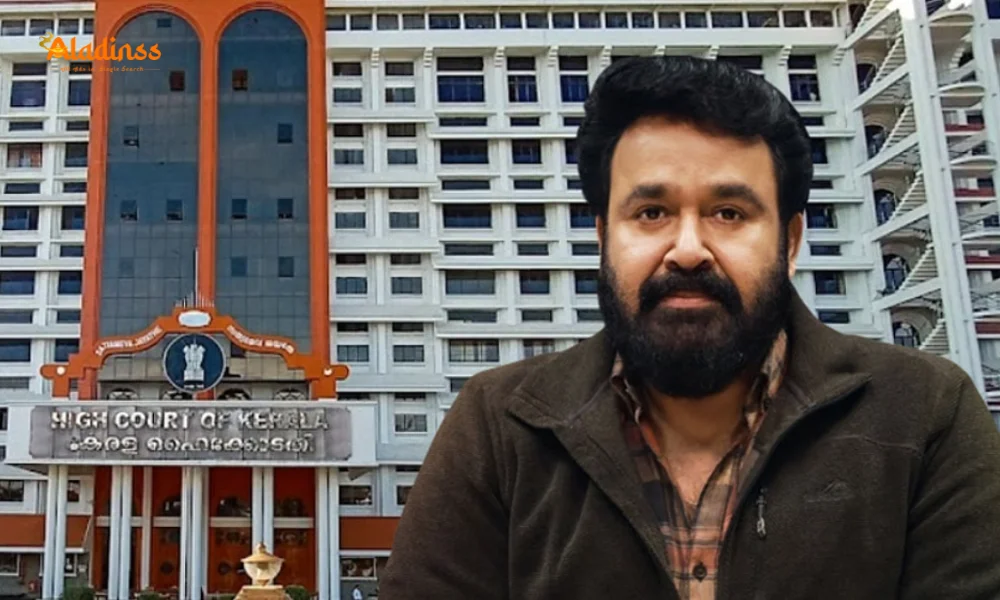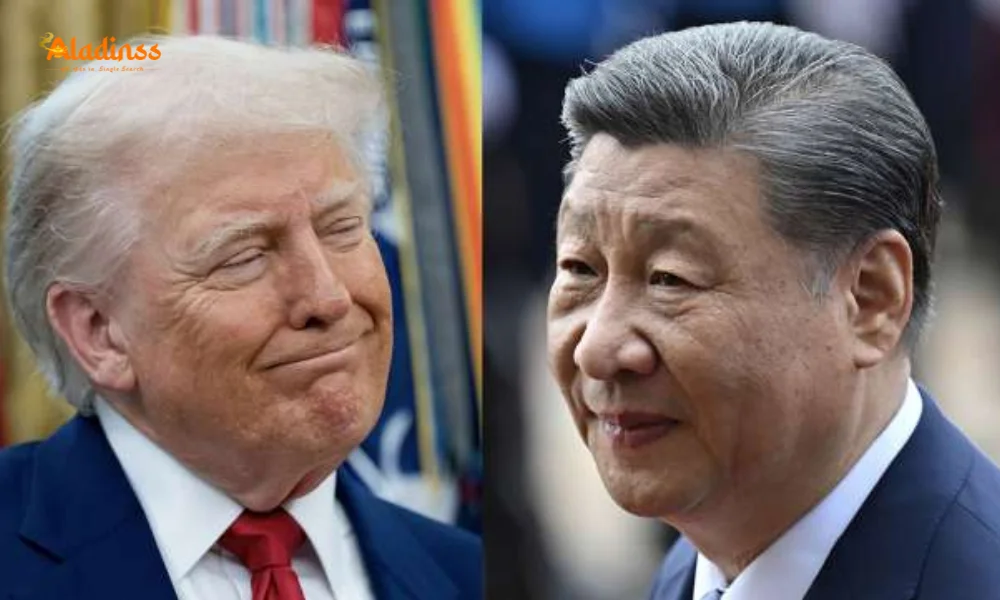Kerala HC Voids Mohanlal’s Ivory Certificates: Shocking Court Ruling Sparks Debate

Kerala High Court Voids Mohanlal’s Ivory Ownership Certificates
In a significant ruling, the Kerala High Court has declared the ownership certificates issued to actor Mohanlal for possessing ivory items as “void ab initio and legally unenforceable.” The verdict, delivered on Friday by a Division Bench of Justices AK Jayasankaran Nambiar and Jobin Sebastian, marks a major setback for the renowned actor. The court’s decision stems from a petition challenging the state government’s notifications that allowed Mohanlal to retain ivory artefacts, highlighting procedural lapses in the issuance process.
The court clarified that the state government could issue a fresh notification under Section 40(4) of the Wildlife (Protection) Act, 1972, provided it adheres to legal requirements. This ruling has reignited discussions about wildlife protection laws and their enforcement, particularly in high-profile cases involving celebrities like Mohanlal.

Background of the Mohanlal Ivory Case
The controversy surrounding Mohanlal’s possession of ivory dates back to June 2012, when the Income Tax Department raided his residence in Thevara, Kochi, following a tip-off. During the raid, authorities seized four elephant tusks, which were subsequently handed over to the Forest Department. Investigations revealed that Mohanlal lacked the necessary permissions to possess the tusks, which were held under the licenses of two other individuals. This led to a case being registered by the Kodanad Range Forest at the Judicial First Class Magistrate Court in Perumbavoor.
In response, the Forest Department later amended its regulations, allowing Mohanlal to retain the ivory items. The state government issued notifications on December 16, 2015, and February 17, 2016, under Section 40(4) of the Wildlife (Protection) Act, permitting the actor to declare two pairs of ivory tusks and 13 ivory artefacts. These declarations led to the issuance of ownership certificates under Section 42. However, these actions were challenged by Paulose KA, a resident of Eloor, Kochi, who argued that the certificates were issued despite ongoing criminal proceedings.
Kerala High Court’s Ruling on Ivory Certificates
The Kerala High Court’s verdict focused on the procedural irregularities in the government’s notifications. The court found that the state failed to publish the notifications in the official gazette, a mandatory requirement under the Wildlife (Protection) Act. The government argued that alternative publicity measures were sufficient, but the court rejected this claim, emphasizing that statutory requirements cannot be bypassed.
“The provisions of Section 40(4) are special provisions that empower a State Government to confer immunity on persons otherwise in unlawful possession of animal articles or trophies,” the Bench stated. “Such power must be exercised strictly in the manner prescribed under the Act.” The court further noted that the failure to publish the notifications in the gazette rendered them legally invalid, as electronic media publication could not substitute for the statutory requirement.
Implications for Mohanlal and Ongoing Legal Proceedings
The court’s decision to declare the government orders “void ab initio” has significant implications for Mohanlal, as it nullifies the legal basis for his possession of the ivory items. However, the Bench refrained from commenting on the validity of the ownership certificates themselves to avoid prejudicing the actor in the ongoing criminal case at the Perumbavoor Magistrate Court. This cautious approach ensures that the legal proceedings remain unaffected by the High Court’s observations.
The court also left room for the state government to issue a fresh notification under Section 40(4), provided it complies with the prescribed legal procedures. This offers a potential pathway for Mohanlal to regularize his possession of the ivory items, but it will require strict adherence to the Wildlife (Protection) Act’s requirements.
Wildlife Protection Laws in India
The Wildlife (Protection) Act, 1972, is a cornerstone of India’s efforts to conserve its biodiversity and protect endangered species, including elephants. The possession of ivory, derived from elephant tusks, is strictly regulated under the Act, with severe penalties for violations. Section 40(4) allows the state government to grant immunity to individuals possessing animal articles under specific conditions, but such exemptions must follow rigorous legal processes, including publication in the official gazette.
The Mohanlal ivory case highlights the challenges of enforcing wildlife protection laws, particularly when high-profile individuals are involved. The court’s ruling underscores the importance of procedural compliance and sends a strong message about the need for transparency and accountability in granting exemptions for possessing protected items.
Public and Legal Reactions to the Verdict
The Kerala High Court’s decision has sparked widespread discussion, with wildlife activists praising the ruling for upholding the sanctity of the Wildlife (Protection) Act. The petitioner, Paulose KA, expressed satisfaction with the verdict, noting that it reinforces the need for strict adherence to legal procedures in cases involving protected wildlife articles.
On the other hand, supporters of Mohanlal have argued that the actor complied with the government’s directives by declaring his ivory possessions. They contend that the procedural lapse was on the part of the state government, not the actor, and are hopeful that a fresh notification will resolve the issue. The ongoing criminal proceedings in Perumbavoor will likely play a critical role in determining the final outcome of the case.
Historical Context: 2012 IT Raid and Its Aftermath
The 2012 Income Tax raid on Mohanlal’s residence brought the issue of his ivory possession into the public eye. The seizure of four elephant tusks raised questions about the legality of his possession and prompted legal action by the Forest Department. The subsequent decision to allow Mohanlal to retain the tusks through amended regulations and ownership certificates was controversial, as it appeared to circumvent the strict provisions of the Wildlife (Protection) Act.
The Perumbavoor court’s rejection of the government’s attempt to withdraw the case against Mohanlal further complicated the matter. The actor’s appeal to the High Court resulted in a stay on the Magistrate’s Court order, but the recent ruling on the invalidity of the government notifications has shifted the focus back to procedural compliance.
What’s Next for Mohanlal and the Case?
The Kerala High Court’s ruling leaves Mohanlal in a precarious position, as the invalidation of the ownership certificates undermines his legal claim to the ivory items. The state government’s next steps will be crucial, as it must decide whether to issue a fresh notification in compliance with the Act. Any new notification will need to be published in the official gazette to meet the statutory requirements, ensuring transparency and legal validity.
Meanwhile, the ongoing criminal proceedings in Perumbavoor will continue to scrutinize the circumstances surrounding Mohanlal’s possession of the ivory. The court’s decision to avoid commenting on the certificates themselves ensures that the actor’s legal defense remains unaffected by the High Court’s ruling, but the outcome of the criminal case will be pivotal.
Broader Implications for Wildlife Conservation
The Mohanlal ivory case has broader implications for wildlife conservation in India, particularly in the context of protecting endangered species like elephants. The illegal trade in ivory remains a significant challenge, with strict regulations aimed at curbing poaching and trafficking. High-profile cases like this one draw attention to the enforcement of wildlife laws and the need for consistent application across all individuals, regardless of status.
The court’s ruling serves as a reminder that legal exemptions for possessing protected wildlife articles must be granted with utmost care and transparency. It also highlights the role of public vigilance, as demonstrated by the petitioner’s challenge, in ensuring accountability and upholding the rule of law.
As the case progresses, it will likely continue to spark debates about wildlife protection, celebrity privilege, and the enforcement of environmental laws in India. Stay tuned for updates on Mohanlal’s legal battle and the state government’s response to the Kerala High Court’s landmark ruling.
Comment / Reply From
No comments yet. Be the first to comment!











